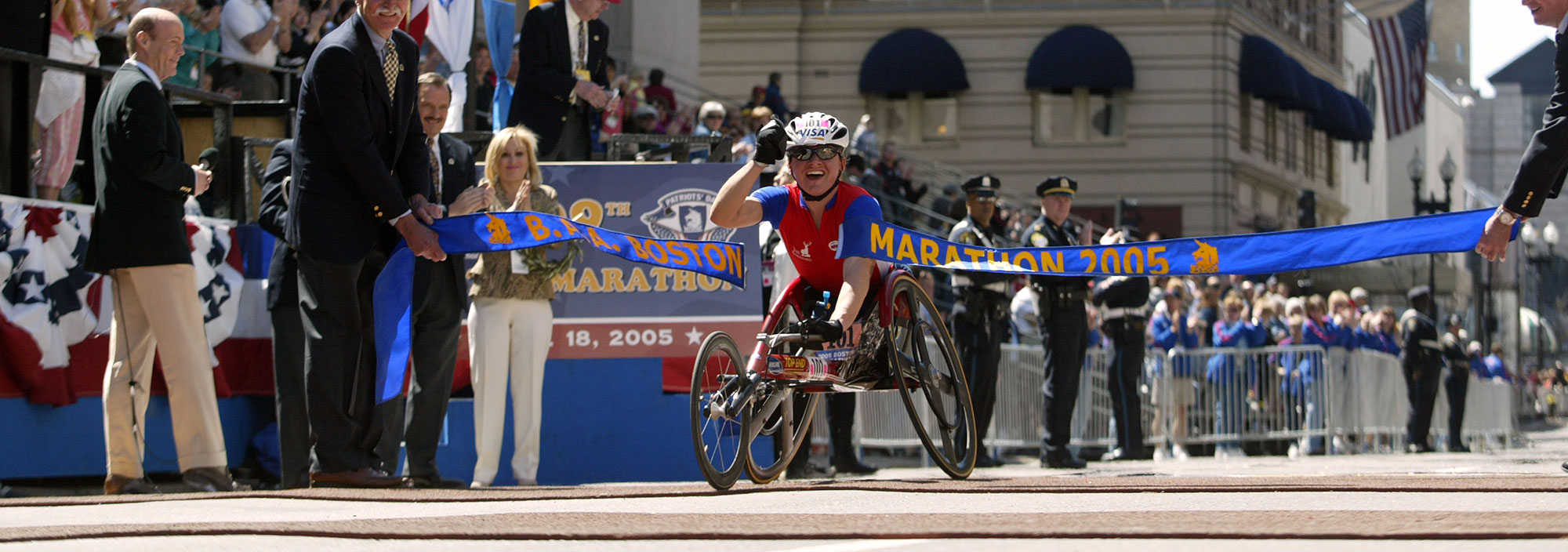DISCLAIMER: This content is NOT being updated and should only be used for historical reference.

A member of USADA’s Board of Directors since 2012, Dr. Cheri Blauwet is a distinguished Paralympic athlete who has competed for Team USA in the sport of wheelchair racing at three Paralympic Games (Sydney ‘00, Athens ‘04, and Beijing ‘08), racking up an impressive seven medals along the way. She is also a four-time winner of the Los Angeles Marathon and a two-time winner of both the Boston and New York City Marathons.
With a medical degree from Stanford Medical School, Dr. Blauwet currently serves as a faculty member at Harvard Medical School and practices Sports Medicine at the Brigham and Women’s Hospital and at Spaulding Rehabilitation Hospital. She is also Chairperson of the Medical Committee for the International Paralympic Committee (IPC).
Currently in Rio to help with medical oversight at the 2016 Paralympic Games, Dr. Blauwet took some time to reflect on sport and the Games from the perspective of an athlete, medical expert, and leader in the anti-doping movement:
Question: Now an Olympian with seven medals, what first inspired you to start wheelchair racing?
Dr. Blauwet:
Well, I grew up in a rural community in northwest Iowa, and for a long time, I didn’t know I could be an athlete. It wasn’t until I was in 8th grade that I learned about wheelchair racing, and I was immediately intrigued by the opportunity to spend time with people I had something in common with.
Even though I started racing for the social network, I kept racing because I came to love the exhilaration of competition and the drive to succeed.
Question: Do you have a favorite moment from any of the three Paralympic Games you’ve competed in?
Dr. Blauwet:
That’s a hard question because there are so many amazing moments! If I had to choose one, it would be my Paralympic marathon race in Athens in 2004. First of all, it was an extremely challenging course. After pushing myself to my limits, we got to finish the race in Athens’ historic Panathenaic Stadium, where so many other Olympians, and now Paralympians, have competed throughout history. It was a grueling race capped off with an awe-inspiring finish.
Question: What do you think will be the most exciting part about helping with the 2016 Paralympic Games in Rio?
Dr. Blauwet:
At the 2016 Paralympic Games, I think one of the most exciting things will be seeing how the latest technological advances will allow athletes to have some of the best performances we’ve ever witnessed. This Paralympics is also exciting because it will receive more coverage in the U.S., which means that more communities can learn about para sport.
Question: How do you think the IPC’s decision to take a stand against state-supported doping will influence para sport at the Rio Games?
Dr. Blauwet:
As I interact with athletes here in Rio, it’s clear that the IPC’s action against state-supported doping has enabled them to move forward and compete with more confidence. The IPC’s decision has sent a strong message to the international sport community that doping won’t be tolerated, so athletes have been reassured that they will be competing on a fair and level playing field.
Question: What is the most rewarding part about being the Chairperson of the IPC’s Medical Committee?
Dr. Blauwet:
For me, the best part about being a member of the IPC’s Medical Committee is the fact that I get to help athletes stay safe and healthy while they pursue their Olympic and Paralympic dreams. I love being able to support athletes, and in Rio, our team will further advance the field of Paralympic sport science by leading an injury and illness surveillance study.
Question: How did you know you wanted to pursue a career in sports medicine and rehabilitation?
Dr. Blauwet:
It actually seemed like a pretty obvious career choice given that I wanted to stay involved in the sports community. Even while I was in medical school, I kept racing and I knew that a career in sports medicine would mean I could keep contributing to something I love.
Question: Why did you decide to become a board member for USADA?
Dr. Blauwet:
When I learned about the opening, I jumped at the opportunity because I’ve always believed that it’s exceptionally unjust when athletes are cheated out of success because of doping. Being on the Board for USADA is also a great way for me to give back to clean sport even though my competitive career is finished. What we do is so important for promoting ethics in sport, both on and off the field of play.
Question: When you consider the current anti-doping landscape, what do you think is the most important way the system can be improved?
Dr. Blauwet:
While we are starting to see some important changes, I think one of the top priorities right now is to build the capacity of National Anti-Doping Organizations (NADOs) around the world that want to do the right thing, but struggle to find the resources. It’s important for all athletes to know that their competitors are subject to the same robust anti-doping programs they are, regardless of their nationality.
The anti-doping community also needs to focus on empowering athletes and helping them voice their frustrations about doping. Athletes are the ones who can make stakeholders listen and effectuate change.
Question: Do you have any additional thoughts to share with current and future Olympians and Paralympians?
Dr. Blauwet:
I just want to thank all of them for their hard work and for being part of the solution by competing clean. It’s so inspiring to see athletes who are motivated by the love of sport, and these athletes show us the real meaning of excellence.



